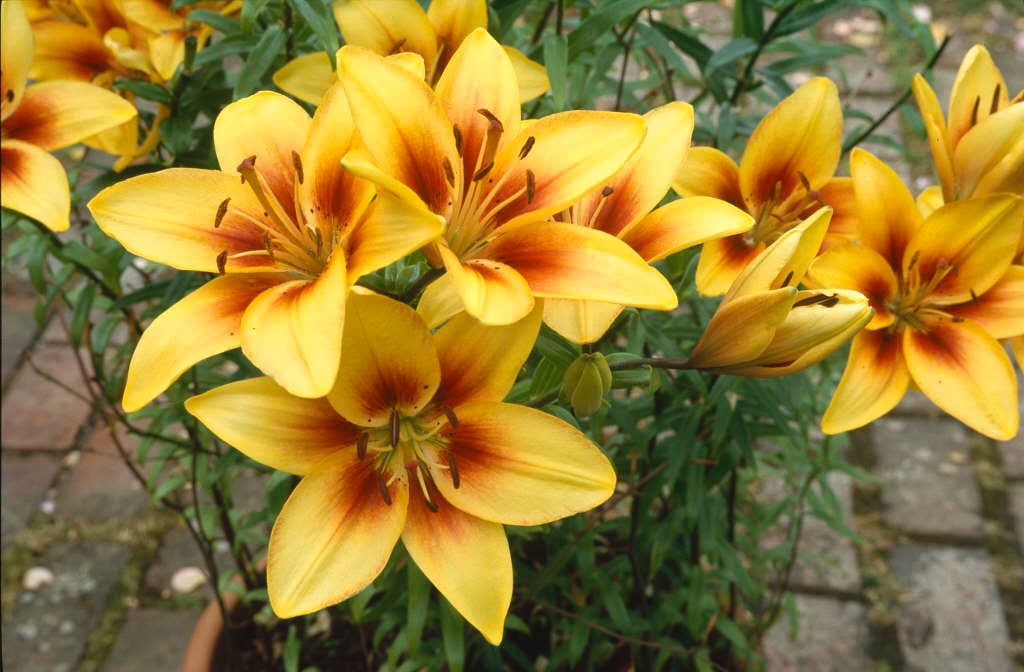Size
Ultimate height
0.5–1 metresTime to ultimate height
2–5 yearsUltimate spread
0.1–0.5 metresGrowing conditions
Moisture
Moist but well–drained, Well–drainedpH
Acid, Alkaline, NeutralColour & scent
| Stem | Flower | Foliage | Fruit | |
| Spring | Green | |||
|---|---|---|---|---|
| Summer | Red Yellow | Green | ||
| Autumn | ||||
| Winter |
Position
- Full sun
Aspect
West–facing or East–facing or South–facing
Exposure
Sheltered Hardiness
H6Botanical details
- Family
- Liliaceae
- Native to GB / Ireland
- No
- Foliage
- Deciduous
- Habit
- Bushy
- Potentially harmful
- Ornamental bulbs - not to be eaten. Wear gloves and other protective equipment when handling. TOXIC to pets if eaten (cats) - see the HTA guide to potentially harmful plants for further information and useful contact numbers
- Genus
Lilium are bulbous perennials with erect stems bearing whorled or spirally arranged leaves and terminal racemes or umbels of bowl-shaped, trumpet-shaped, funnel-shaped or turks cap shaped flowers, often fragrant, and white, yellow, orange or red
- Name status
Accepted
- Horticultural Group
- Division Ia lilies are early flowering Asiatic hybrids with alternate leaves and upright funnel-shaped flowers
How to grow
Cultivation
Grow in well-drained soil enriched with leaf mould or well-rotted organic matter
Propagation
Propagate by seed, sown, when ripe, in containers in a cold frame or separate offsets after the foliage dies down
Suggested planting locations and garden types
- Patio and container plants
- City and courtyard gardens
- Cottage and informal garden
- Flower borders and beds
- Underplanting of roses and shrubs
Pruning
No pruning required
Pests
May be susceptible to lily beetle, aphids, slugs, snails, Thrips, leatherjackets, and wireworms, and to damage by rabbits and voles; plants in containers may be susceptible to vine weevil
Diseases
May be susceptible to grey moulds and a virus; see lily diseases
Get involved
The RHS is the UK’s gardening charity, helping people and plants to grow - nurturing a healthier, happier world, one person and one plant at a time.
